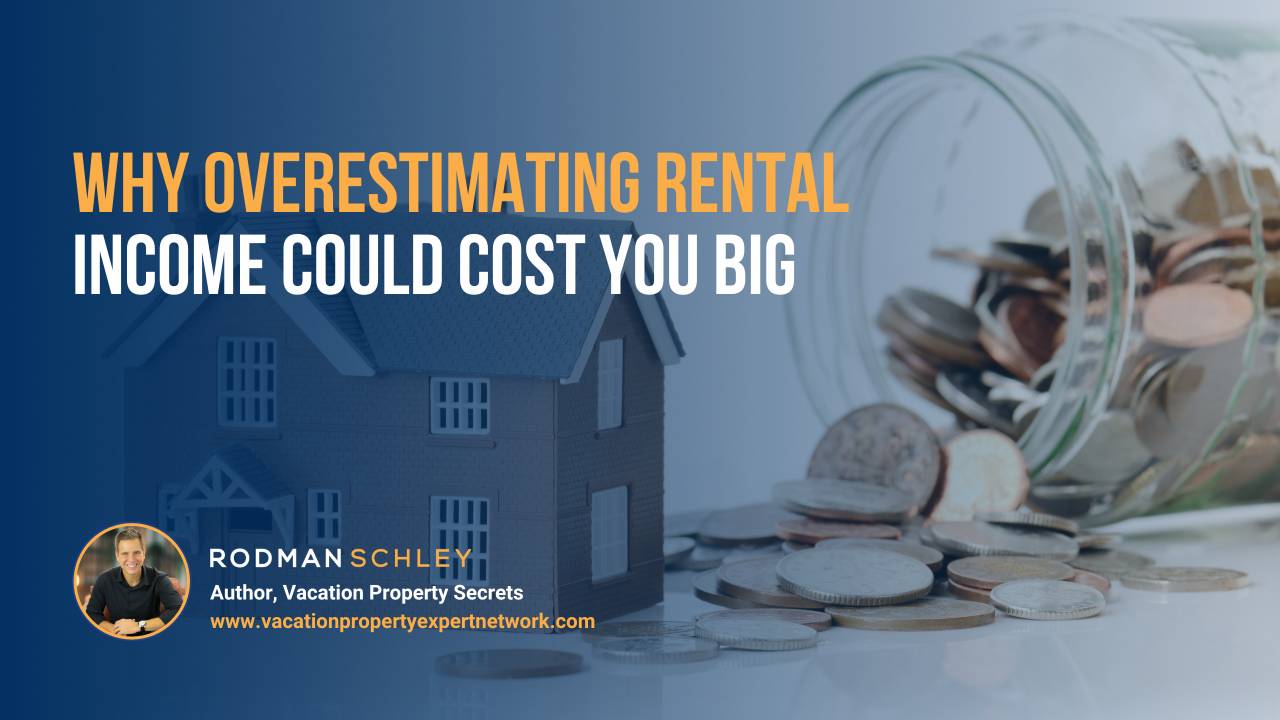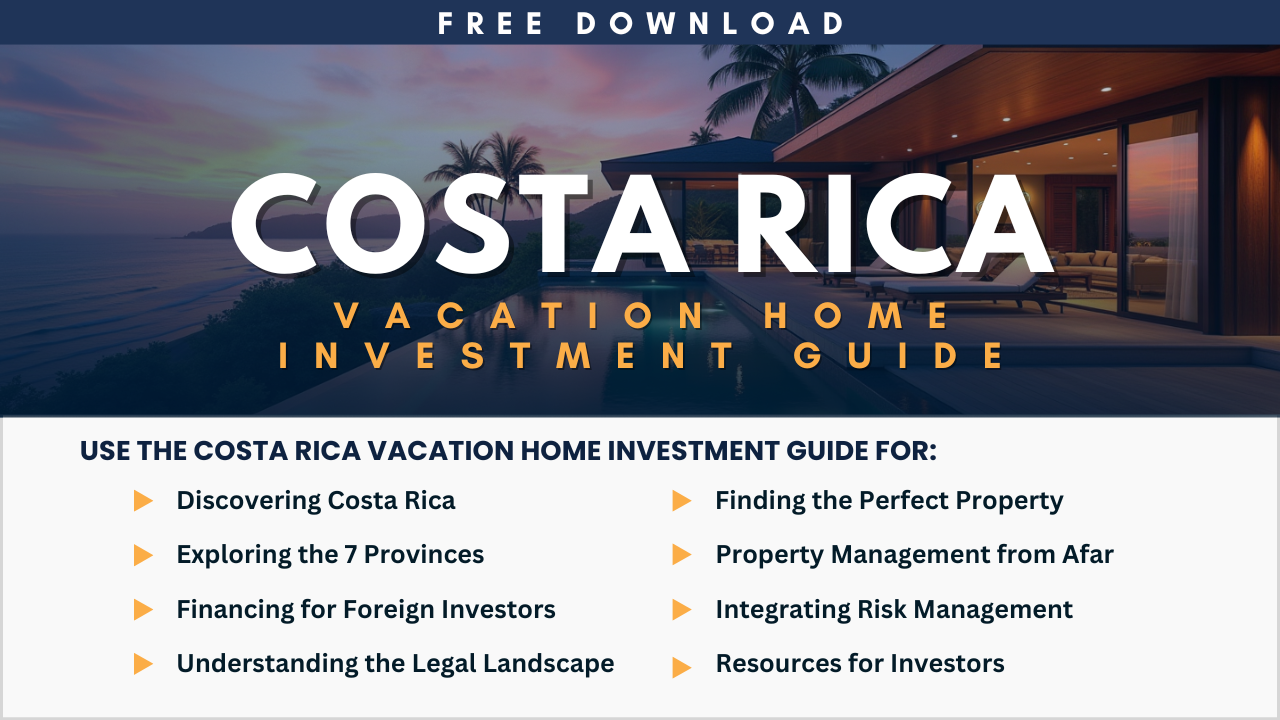
Why Overestimating Rental Income Could Cost You Big
As a vacation rental owner, the allure of earning substantial income is one of the key reasons you’ve entered the market. After all, with the right property in the right location, it’s possible to generate significant revenue. However, it’s easy to get caught up in projections of what your vacation rental could make, rather than what it realistically will make. Overestimating your rental income can lead to poor financial decisions, unpreparedness for off-peak seasons, and ultimately, financial strain.
While it’s tempting to assume high profits based on optimistic estimates, overestimating rental income can lead to a chain of costly mistakes. In this post, we’ll explore why overestimating your rental income is a dangerous trap, the risks involved, and how you can avoid falling into this common pitfall. By managing expectations and understanding the realities of the vacation rental market, you can make smarter decisions that will keep your investment on track and ensure long-term profitability.
Why Setting Realistic Rental Income Expectations is Critical
Understanding the true earning potential of your vacation rental is essential for making informed decisions about your investment. It’s easy to fall into the trap of optimistic calculations based on “best-case scenarios” or comparisons with highly successful listings, but doing so can leave you financially exposed.
Here’s why setting realistic expectations is crucial:
- Avoid Financial Overreach: If you overestimate your rental income, you might make financial commitments—like renovations, property management contracts, or future investments—that you can’t afford during low-occupancy months.
- Planning for the Off-Season: Not accounting for seasonal fluctuations can lead to cash flow problems. Many vacation rental markets experience a dip in demand during the off-season, and if you’ve overestimated your potential income, you could be unprepared for these quiet months.
- Budgeting for Expenses: Accurate income projections help ensure that you’re budgeting for maintenance, cleaning fees, insurance, and other operational costs. Overestimating your income could lead to underfunding these essential expenses.
By being realistic about your rental income, you set yourself up for long-term stability and ensure that your investment is financially sustainable, even during periods of low demand.
Misleading Comparisons Can Inflate Your Expectations
A common mistake made by vacation rental owners is comparing their properties to others in the area without fully understanding the differences. It's easy to look at other listings and assume that the high income they’re generating is attainable for you, but factors like location, amenities, guest ratings, and management can make a big difference in actual earnings.
Here’s how comparisons can lead to overestimation:
- Overlooking Unique Variables: Even in the same neighborhood, two vacation rentals may have vastly different earning potentials. A property with a prime oceanfront view or exceptional amenities can justify a higher rate, while another property in the same area might struggle to achieve similar income, even with similar pricing.
- Ignoring Reviews and Reputation: A high-income rental may have built up a solid reputation and an extensive list of repeat guests. If you’re new to the market or don’t have positive reviews yet, it’s unrealistic to expect that you’ll instantly match their income.
- Not Considering Occupancy Rate Variability: High-earning listings often have better occupancy rates, and those rates can fluctuate depending on demand, market conditions, and seasonal changes. Comparing your potential occupancy to a high-performing property can result in inaccurate income projections.
To avoid overestimating your income, take a comprehensive look at all factors that affect earnings, including the specifics of your property, local market conditions, and competition.
Seasonal Fluctuations Can Affect Your Rental Income
Seasonality plays a huge role in vacation rental income, and overestimating potential income without factoring in seasonal fluctuations can lead to financial mismanagement. If your property relies heavily on peak season (e.g., summer or holidays), you may experience periods of low occupancy during the off-season, which can dramatically impact your earnings.
What you need to understand:
Peak vs. Off-Peak:
- While peak seasons can bring in substantial rental income, off-peak months can see occupancy rates drop significantly. If you’ve overestimated how much you’ll earn during the off-season, you may find yourself struggling to meet your financial goals.
Changes in Demand:
- Even within peak seasons, demand can fluctuate. Unexpected events—such as a local festival or weather disruptions—can lead to changes in occupancy. If you’ve based your income projections on the highest possible demand, you could find yourself overestimating the consistency of bookings.
Inaccurate Cost Estimates Can Lead to Financial Losses
In addition to overestimating your rental income, many owners fail to account for the costs involved in running a vacation rental. From maintenance and cleaning fees to insurance and management costs, the expenses can quickly add up. If you’re not factoring in all of these costs, you could be left with much less profit than you expect.
Here’s why it’s important to account for all expenses:
- Upkeep and Maintenance Costs: Your vacation rental requires regular maintenance, from cleaning between guests to handling repairs. Overestimating income without properly budgeting for maintenance can lead to financial stress.
- Property Management Fees: If you’re hiring a property manager, their fees—usually around 20-30% of your rental income—should be factored into your projections. Failing to account for this will leave you with less profit than anticipated.
- Insurance and Taxes: Insurance for a vacation rental can be significantly more expensive than regular homeowners insurance. Additionally, taxes on rental income can eat into your profits. Make sure to include these costs when estimating your rental income.
By accurately calculating both income and expenses, you’ll have a more realistic view of your potential profit, which can help you avoid overextending yourself financially.
Local Regulations and Legal Restrictions Can Impact Your Income
Local laws and regulations can significantly affect how much you can earn from your vacation rental. Overestimating rental income without understanding these legal constraints can lead to disappointment and even legal troubles.
Key regulations to consider:
- Short-Term Rental Licenses and Taxes: Many cities require vacation rental owners to obtain specific licenses and pay taxes on rental income. Failing to comply with local regulations can result in fines or even the suspension of your rental listing.
- Zoning Laws: In some areas, zoning laws may restrict or prohibit short-term rentals. Before listing your property, make sure to check local zoning laws to ensure your rental is allowed in the area.
- Occupancy Limits and Restrictions: Some cities impose limits on the number of nights you can rent out your property each year. If you’re relying on year-round bookings, you may be limited in how many days you can rent your property.
By researching and adhering to local laws and regulations, you can avoid legal issues that could derail your investment. Make sure to factor any legal constraints into your income projections to avoid unrealistic expectations.
Preparing for Unexpected Expenses and Challenges
Even with accurate projections, vacation rental ownership comes with unexpected challenges. Whether it’s an unforeseen repair, a legal issue, or an unexpected drop in demand, you need to be prepared for the unexpected.
Here’s how to plan for the unforeseen:
- Emergency Fund: Set aside funds for unexpected expenses, such as emergency repairs or legal costs. An emergency fund helps ensure that you can cover unexpected costs without derailing your investment.
- Insurance: Make sure you have adequate insurance coverage for your property, guests, and liability risks. Insurance will help cover unexpected events like property damage or guest injuries, which can be costly if not addressed.
- Market Changes: Always be ready for market fluctuations. Whether it’s a shift in local tourism trends or the impact of external factors like the economy or global events, being adaptable can help you adjust your strategies and minimize losses.
By preparing for unexpected challenges, you ensure that your investment remains sustainable, even when things don’t go according to plan.
Conclusion
Overestimating your rental income is a trap that many vacation rental owners fall into, but it can have serious consequences. By setting realistic income expectations, considering seasonal fluctuations, accounting for all expenses, and staying informed about local regulations, you can protect your investment and make smarter financial decisions.
If you want to avoid the pitfalls of overestimating your rental income and ensure your vacation rental is a success, visit the Vacation Property Expert Network at: 👉 www.vacationpropertyexpertnetwork.com. We offer expert resources and advice to help you maximize your rental’s potential and make informed decisions every step of the way.







